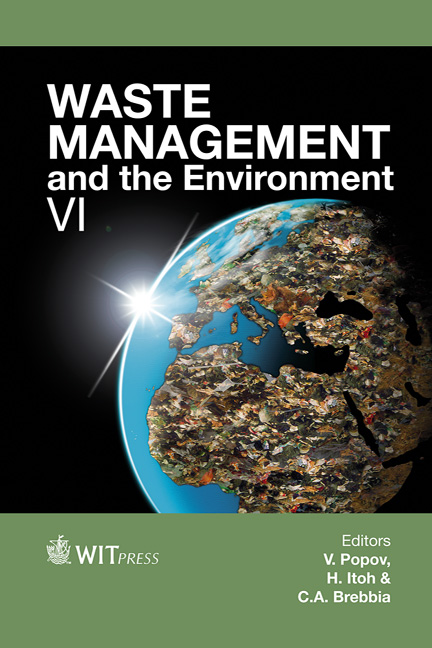Extended Producer Responsibility (EPR) And Job Creation In Korea
Price
Free (open access)
Transaction
Volume
163
Pages
8
Page Range
75 - 82
Published
2012
Size
304 kb
Paper DOI
10.2495/WM120071
Copyright
WIT Press
Author(s)
J. H. Kim
Abstract
Extended Producer Responsibility (EPR) is a system that imposes a certain quota for the recyclable waste from products or packaging materials on the manufacturer of the products. If the quota is not complied with, a fine that is greater than the cost of implementing proper recycling shall be imposed upon the manufacturer. Since the introduction of the EPR system in 2003 in Korea, product recycling has continuously increased. The output of EPR items in 2007 increased by 11.6%, while the amount of items recycled for the same year increased by 32.3%, compared to the period before the EPR system was implemented. Also, it is estimated that 2,264.3 billion won (2.05 billion US $) of economic benefits and 4,260 new jobs have been created in the 5 years (2003– 2007) following the implementation of the EPR system. However, before starting the EPR system, several steps must be taken in advance. The first step is a general governmental role in recycling. The second step should involve citizens’ role or consumers’ responsibility. A volume-based garbage collection fee (VGCF) system is a kind of citizens’ burden for voluntary participation in paying more for sorting of recyclable materials instead of paying more garbage collection fees. After that, the government and consumers may naturally ask producers to take responsibility for more recycling without polluting the environment. One of the important experiences in the Korean EPR is the shared responsibility concept among governments, consumers, and producers. Keywords: extended producer responsibility, municipal solid waste management, resource-circulating society, sustainable development, venous or recycling industry, volume-based garbage collection fee system.
Keywords
extended producer responsibility, municipal solid waste management, resource-circulating society, sustainable development, venous or recycling industry, volume-based garbage collection fee system.





